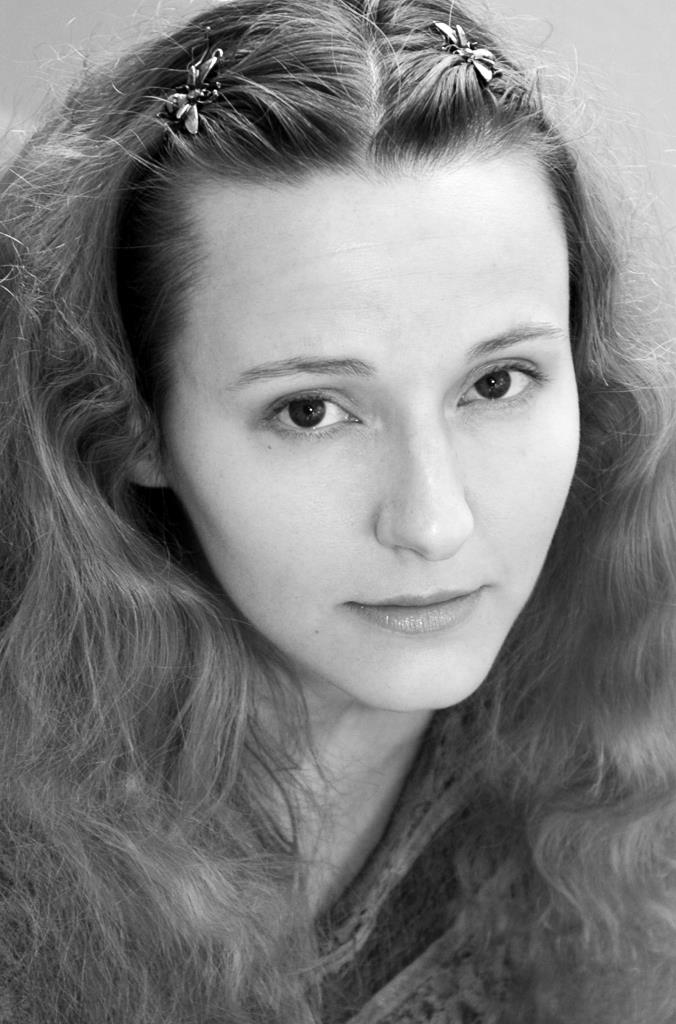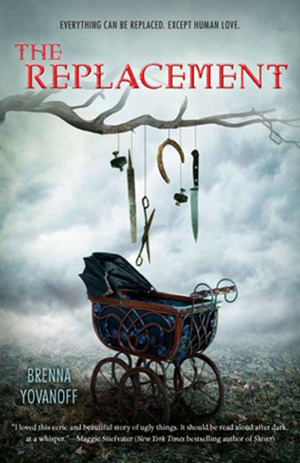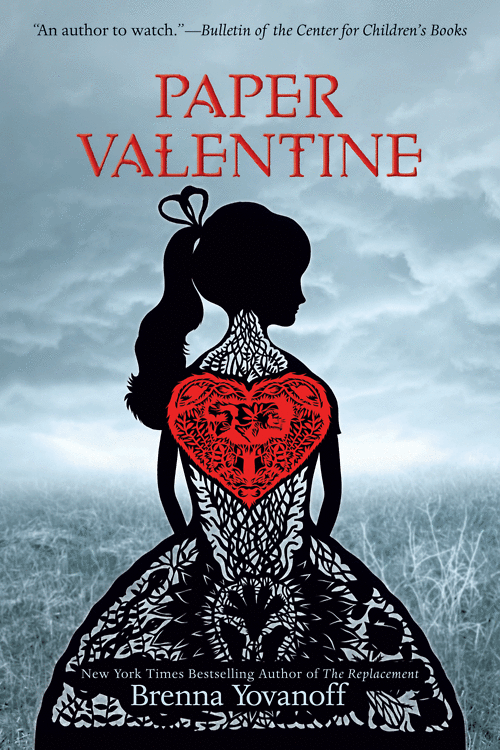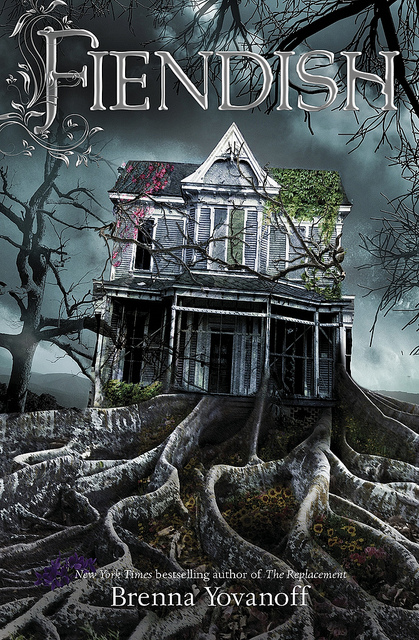Brenna Yovanoff
MFA, Creative Writing, 2006
http://brennayovanoff.com/

How did your major prepare you for the job, the life you have now?
The MFA program helped me in a lot of ways, but I’d say the biggest thing was probably that it taught me how to take critique and also to finish what I start. Before grad school, I always had a lot of half-finished manuscripts and little snippets lying around, but over the course of three years, I learned to just sit myself down and write until I got to the end.
What do you consider to be your greatest accomplishments (both personally and professionally)? How did your experience in the English Department help you with these achievements?
My first novel, The Replacement, debuted on the New York Times list, which was huge and disorienting and wonderful. It wasn’t a possibility I’d even really considered and so it was almost too inconceivable to really take in. Even now, I sometimes have a hard time believing that it happened. My most recent novel, Paper Valentine, was just named as one of NPR’s best books of 2013, which was definitely one of my proudest moments.
What did you like about the English program? Why did you choose to study at CSU?
I’m a local girl, so as unexciting as it sounds, that factored pretty heavily into my decision. When it came time to choose a masters program, I already knew that I loved the English department, the city, the campus, the library, and I wanted to stay.
Was there a specific class, professor, advisor, or fellow student who made an impression on you, helped you, or inspired you when you were at CSU in the English Department? Do you still keep in contact with your classmates or professors?
Gilbert Findlay, no contest. He was my adviser when I transferred to CSU during my undergrad and in addition to being just a wonderful human being, it turned out that he taught a class called “Adolescent Literature.” Even though I’d recently been reading a lot of YA in my spare time, I hadn’t really considered how brilliant and complex and diverse it could be. Professor Findlay and his class were largely responsible for my decision to focus on writing YA longterm.
What would you like to tell prospective CSU English Department students?
I think I’d tell them that the English department, and Creative Writing in particular, has an amazing sense of community. The friends I made there are lifetime friends. Also, I think that Fort Collins in general is just a great place to live. The arts and literature scene is amazing, so if you’re looking for fun, fascinating people to get excited about writing and literature with, this is definitely your place.
What advice do you have for current CSU English Department students?
Internships. If you have an opportunity for an internship, take it. I had a number of them during my time at CSU and they were always invaluable, no matter what the actual work experience was.
And also, the library is your best friend. Especially the basement and the top floor. And everywhere else too, but especially the cozy, secluded places where no one goes and you can hunker down and work for hours in peace and quiet. I love Morgan Library. I would live there. (For a couple years, I kind of did.)
You have an hour to spend in a bookstore. What section do you make a beeline to?
The YA section, always and absolutely! My reading tastes are pretty eclectic, so the YA section is a perfect way to pick just one shelf without actually having to pick. I know that under that designation, I’ll find books that encompass every genre and subject and style and voice, with no shortage of literary quality and risk-taking.
What are your hobbies or special interests, what do you enjoy doing with your free time?
In a lot of ways, I’m very much a homebody. I love to cook and sew, and to plant terrariums and grow houseplants. I write about a lot of dark and creepy things, and I think that maybe being aggressively domestic is a way to balance that out.
What helps you start writing? What inspires you?
The short answer? Coffee! I’m a big fan of routine, and I really like to settle in somewhere with my headphones on and something hot to drink, and just dive in. While I think it’s really important to pay attention to what’s happening in the world, and ideas can come from anywhere at any time, I don’t really subscribe to the concept of waiting for the muse. If you write for your day job, the bottom line is, you have to write, and I always find that the more I do it, the more I get excited about writing and the faster the ideas come together and build on each other.
What led to you being published?
Lots and lots and lots of revisions. And research. The internet is a great resource. If you aren’t learning about literary agents or submitting short work to journals and magazines or writing query letters in any of your writing classes, the internet is there to tell you everything you need to know.
Also, persistence is key. Publishing is an industry where you will hear “No” a lot and you have to just kind of be okay with that. The trick is to hear it, make note of it, and then mentally adjust the answer from “No” to “Not yet.” Then, you sit down and try again.
Do you have any advice for writers looking to be published?
See above—lots and lots (and lots and lots and lots) of revision. It really helps to think of writing as an endurance sport. If you expect immediate results, you’re probably going to wind up disappointed, but if your main focus is on improving your work, then it will always improve. You’ll get there in the end.
Your most recent book was YA Fiction. What did you enjoy most about writing it (Paper Valentine)?
Paper Valentine is my third YA novel, but the first one that has what I’d call a truly contemporary feel. I write a lot of fantasy and horror, and my other books are definitely a little more fantastical in tone and setting.
My latest book, Fiendish, which comes out in August, goes back to that really dreamlike, monstrous world, and so with Paper Valentine it was nice to take a detour into the suburban everyday. Even though the story still involves some prominent genre elements like ghosts and serial murder, the main character, Hannah, is living in a city a lot like Fort Collins and it was a lot of fun to walk that line between fantasy and realism.
What did you think you would do with your degree when you graduated from CSU?
I’d always intended to write fiction, no matter what else I wound up doing, but the future in my head definitely involved a day-job, and for awhile after I graduated, it actually seemed likely that I’d wind up in editorial. I’d been an editorial assistant at the Center for Literary Publishing, working under Stephanie G’Schwind, and I absolutely loved it. But instead, I got an agent, she sold The Replacement to Penguin, and now I write full-time, and it’s the best job I can imagine!
*(Special thanks to intern Evelyn Vaughn for facilitating this profile).
It made us so happy to get an update from Brenna. The English Department has many alumni, just like Brenna, who are doing good and interesting work, living full and vibrant lives. When stories about our alumni hit the news or we are emailed an update, we love to share it. Teachers, staff, and fellow alumni are happy to hear how their friends are doing. Current students appreciate examples of previous students making a life, making a difference. Prospective students are encouraged knowing what our program has to offer and where it takes people.
We are hoping to feature more news of CSU English Department alumni making their way in the world. If you are a CSU English Department Alumni, please email Jill.Salahub@Colostate.edu and let her help you share your story.


